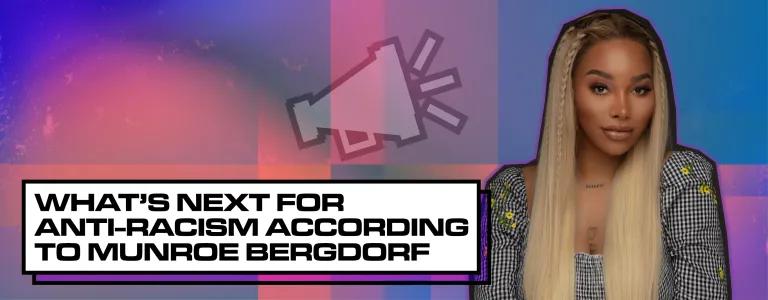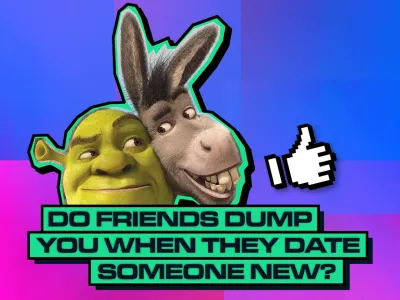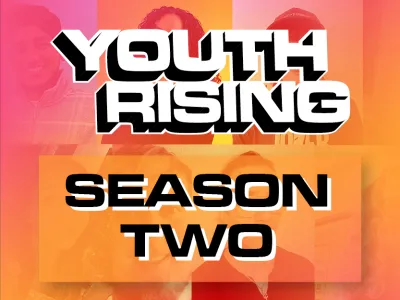
What’s Next For Anti-racism According To Munroe Bergdorf
This Black History Month is all about taking action. We’ve discussed different ways you can take action and the young, Black people making a positive impact for their communities and the wider world. And recently, Sidje from our Youth Rising podcast team sat down with influencer and activist, Munroe Bergdorf, to discuss how we can continue to move forward with acceptance and equality, what young people can do to support each other, and what’s next for the anti-racism movement. Check out their conversation below, and for the whole episode, click here!
Sidje: Welcome to the Youth Rising podcast. You speak very openly on Instagram, about the Black Lives Matter movement and racial injustice as a whole. Do you think people are actually more aware of the way that racism affects people's lives or is it just a way to trend and be ‘woke’?
Munroe: I think that people are definitely aware, but I don't think that awareness is necessarily always directly akin to systemic change. And I think that's the problem. I think people have always been aware that racism exists, but it's how many people are actually willing to do something about that.
I feel that with everything that happened around the murder of George Floyd, it was a moment where everybody was very, very aware. It’s like what's happening with Ukraine at the moment. It's unavoidable. So the awareness is definitely there, but whether or not that's actually translating into a systemic change where we see corporations and institutions completely refigure to combat systemic racism, which is the real issue, not just individual instances, that remains to be seen.
I think that it opened a lot of conversations, but did it cure anything? No. There is a long road ahead and I do think that a big portion of the battle was that people of colour were not being allowed to speak about racism. It was not that people didn't know, it was that we weren't allowed to speak about it. That's definitely changed.
Sidje: How do you think we can make sure that supporting minority groups doesn't just remain a trend and is a continuous journey with an actual real life end goal?
Munroe: I think a big issue these days is that we consume information in trends. We've become so used to it, because everything is so disposable. Unfortunately, you know, even disasters are disposable. Every single day there's a new disaster that’s there to grab our attention and it is exhausting. So when we are presenting information on how to be good allies, how to combat racism, we need to make sure that we are providing that information in a sustainable way.
So I think what we really need to be doing is focusing our efforts outside of social media. We need to make sure that we are providing educational resources and campaigning to have it entwined into the syllabus, into academia, that Black history isn't just being taught in the month of February or October. Wherever you are in the world, make it entwined into the fabric of society.
Sidje: Many of our Black and Brown team members have talked about times when people who don't experience racism, insist that racism doesn't exist or that systematic racism isn't real. Do you have any advice on things to say when faced with these sorts of arguments?
Munroe: I used to feel like I had to have a debate with anybody that challenged my lived experience. And the reality is that if somebody is positioning themselves to invalidate what you know to be true, you need to really question whether or not it's worth it. Because not everybody actually deserves your energy.
Not everybody is even willing to receive the information that you give to them. So, whereas I used to feel like ‘I'm going to stand my ground and I'm going to double down and show them’, you can't do that with everybody. It's a futile comment these days to say racism doesn't exist. That's a conscious decision that somebody’s made to be ignorant. It's there, it's really down to you whether or not you want to indulge that, or if you want to focus on being around people that see you, that support you, that will allow you to be who you are without saying silly things like that.
Sidje: How do you think we as Black, Brown, or Mixed Race people can confront and challenge some parts of internalised racism we may also have?
Munroe: Therapy. I would advise everybody to go to therapy. I've just started again. And I think it's an extremely freeing thing, but make sure that your therapist shares your intersections because trying to unpack internalised racism for the white therapist, just isn't going to do it.
I think internalised racist trauma is a really unique beast and it can come out in so many different ways and a lot of the time it’s really unconscious.
Community as well. Plug into your community. It could be through a self-defence class, or pottery if that's your thing. But find your thing, do it with your people and just plug into and be around people like yourselves who are feeling similar things to you, because that way the shame is just taken away and it all just feeds back into a narrative of pride. You realise that you're not the only one feeling these things, but it’s super important to confront them before they start to make you feel ashamed of who you are.
Sidje: And how do you think we, as young people, could best support each other when it comes to the Anti-Racism movement?
Munroe: I think that one thing that's definitely standing in our way is how we interact with each other online. I do think that we could be much more understanding of each other and our mistakes.
I wouldn't say I'm anti-cancel-culture, period. I am anti-dragging-each-other. I'm anti-pile-ons, shaming, that kind of thing. I do think that when it comes to people who are intentionally harmful, of course I'm not going to support their work. I'm not going to listen to their music. That kind of boycott thing I'm definitely down with, but when it comes down to how we, as like-minded people, get distracted from actually participating in progress because we're too busy fighting each other, I'm not for that. So I do think we could be a lot kinder and more understanding to each other. And understand that it is possible to change your mind.
Just because somebody says something harmful doesn’t instantly mean that they have intended to cause harm. It could just be a mistake, and they do happen. Everybody has the capacity to grow. I think that we need to be able to check each other and we also need to be willing to receive that as well. Of course, if somebody gets checked and they're not going to receive it, and they're unwilling to acknowledge the harm that they've done, that's very different.
But if somebody messes up, then we need to be able to have enough humility and humanity to understand that everybody messes up at some point. And surely, if we're hoping to get people on side and everybody to grow out of what the world makes us - the world that we live in is misogynistic, it's sexist, it's homophobic, it's anti-Black, racist and transphobic. That's what the world makes us - anti-racist work is really about opening people's minds. And if we're just going to ostracise people when their minds could be open, but maybe aren't yet, I just think it's counterproductive. So, I think context and nuance is really important. Not everybody that messes up is an enemy.
Don’t forget to check out the full episode, where activist and Everyone Versus Racism author, Patrick Hutchinson, shares his experience of being dubbed a hero after carrying a counter protestor to safety, and how he responds to negativity. And comedian and creator of BBC Three’s Muzlamic, Aatif Nawaz, discusses challenging racism in the media and comedy as a way to broach social issues. Check it out here!



